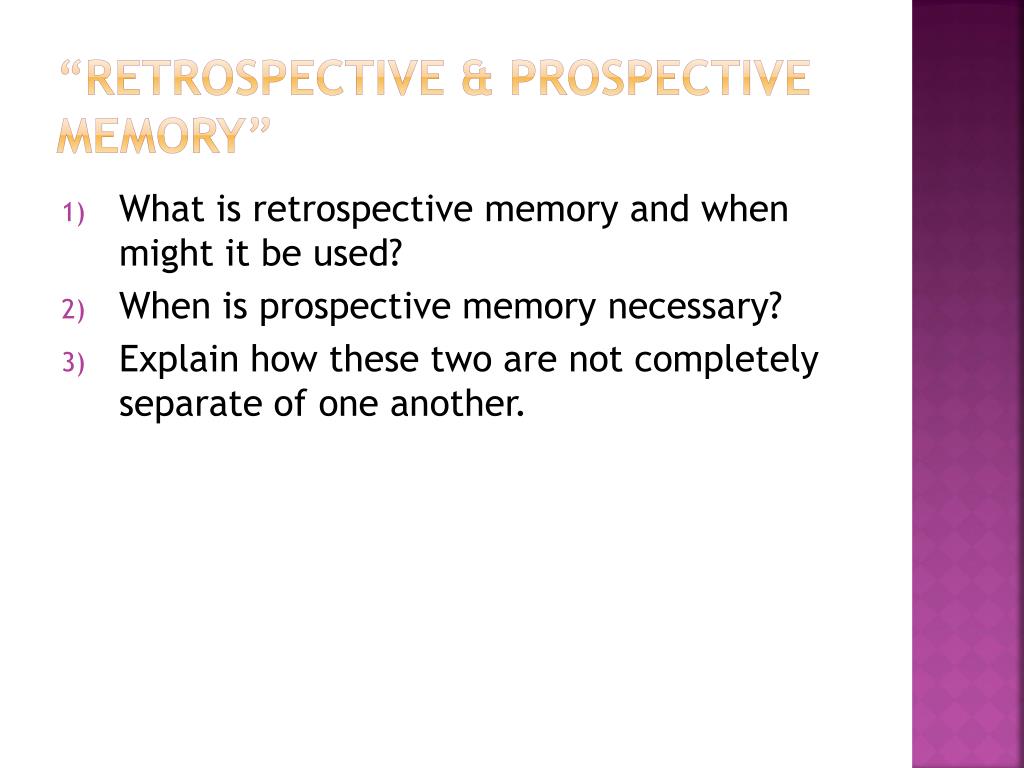

If these results are valid, this can help us separate persons with depression from persons with early stage dementia, which in many cases is difficult. Prospective memory, however, was unaffected by depressive symptoms. The effect was evident for storage and retrieval, whereas there was a non-significant trend in the same direction for encoding. The results showed that retrospective memory was negatively affected by depressive symptoms. Depressive symptoms refers to a continuum, ranging from states (such as mild dysphoria) that are common also among healthy persons to severe depressive disorders. Study III examined how depressive symptoms affected prospective and retrospective memory. When studying retrospective memory in more detail, we found that the impairment in preclinical Alzheimer s disease was present across all three memory stages. The unique contributions of both memory measures indicate that they are, at least in part, separable entities. In addition, the results showed that more people at risk of developing Alzheimer s disease could be identified when the combined results from the two memory tasks were taken into account, compared to using only one task at the time. Both prospective and retrospective memory was impaired three years prior to diagnosis. Study II examined how prospective and retrospective memory were affected during the so called preclinical phase of Alzheimer s disease (i.e., before the disorder had progressed so much that it could be diagnosed). However, there were no differences between the two dementia groups regarding the extent or pattern of memory deficits. The two dementia groups were impaired compared to controls on both prospective and retrospective memory, and the impairment was evident for all stages of the memory process (i.e., encoding, storage and retrieval).

The groups were compared on prospective and retrospective memory tasks. In Study I, three groups were included: persons with Alzheimer s disease, persons with vascular dementia, and healthy control persons. The memory process can be divided into three stages: encoding (forming new memories), storage (consolidation of information), and retrieval (remembering what we have previously encoded). Retrospective memory involves remembering previous events or previously learned information, such as the content of a book. Prospective memory involves remembering to perform actions, such as paying bills or taking one s medication. In this regard, we have focused on dementia disorders, depressive symptomatology, and thyroid functions. This thesis aims to explore how prospective and retrospective memory are affected by health in old age.


 0 kommentar(er)
0 kommentar(er)
